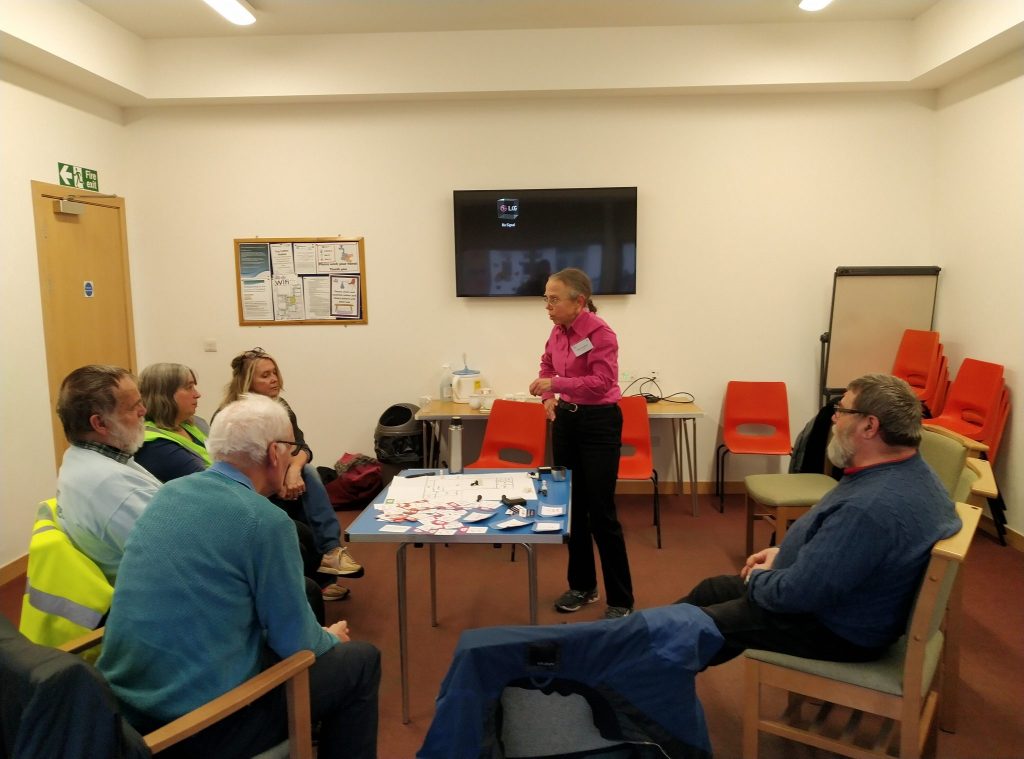HeatHack is in a period of transformation, and it has been busy – but we’ve not been good about keeping people informed about what we’re doing. Here’s a sense of where we are and what the future holds.
We’re very grateful to the Surefoot Effect CIC for incubating us, but it’s time for that relationship to come to a close and for us to set up as a new organisation. We are currently creating the governance documents for the new organisation, where the plan is to create a voluntary association immediately, moving to charitable status as soon as we have everything in place to do that. We expect to end up as a SCIO, but we are taking advice given our business plan about what the right charitable structure will be. We will shortly be looking for more board members with a range of skills who want to attend quarterly meetings to steer our direction – more about that soon.
After years of volunteer activity mostly with churches to reduce energy waste, HeatHack had a reboot in 2021. We designed a structured programme that drew on what we knew about community buildings and the people in them, and thanks to the Royal Academy of Engineering’s Ingenious programme, got a chance to try it with 40 venues, using volunteer engineers across Scotland and sometimes beyond to help them get the big picture right. Change takes time. Some of the venues immediately saved substantial amounts of money by changing their heating controls, and others have been undergoing retrofits or switching from space heating to radiant, a move that can be more appropriate (and much cheaper!) for some spaces. Retrofit funders, architects, third sector support organisations, and building services engineers have all welcomed the approach, so we knew we were on to something. The programme now forms part of the Scottish Episcopal Church’s approach to Net Zero.
Currently, our main activity is training workshops that introduce community group representatives to the main things they need to know about energy use in buildings and our materials that they can use to make change happen. Most are funded by Climate Action Networks working with local Third Sector Interfaces or by the Episcopal church. We’ve run seven so far for groups in Argyll and Bute, Stirlingshire, and East and West Lothian, and have eight left to come between now and November. You can see the full set here:

Meanwhile, we know there are groups using our materials, we don’t have very good ways of counting them. This is something we need to fix! We don’t want to put up any barriers to reading them, but we still need to do something. We do answer direct queries when we get them, although increasingly groups go to other support organisations or direct to funders first and just come to us if they can’t get answers elsewhere. This approach can miss the benefits for groups with newer fossil fuel boilers of looking at the heating controls, so we’re giving that some extra attention. Thanks to the Glasgow City Heritage Trust, we’ve just completed a “heating controls check” pilot with five listed churches, with a view to scaling that up. There is still work to do – even if you know what control features you need, it can be hard to find workers willing to change them – but we always knew this would be an issue that takes time to fix.
Our current draft business plan includes activities to train up other people to deliver workshops, facilitate programme sessions, and perform controls checks so we can reach more people, faster. We’re also considering how to make thermal monitoring and checking for energy wastes cheap and easy without having to field our own equipment, and how we can develop better links with the professionals and support agencies around us so that everyone has a complete path to project success. We’ll say more about this as the details get settled.
Featured image from Wikimedia Commons by Yerpo under license CC-BY-SA Unported 3.0.
